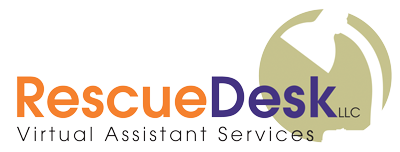HOW TO HAVE MORE TIME OFF THIS SUMMER
When attempting to achieve the elusive work/life balance, it’s easy to find yourself on a mental and emotional hamster wheel. I you’re working too much, your personal life pays the price; if you spend too much time focused away from your professional goals, your work stalls out.
I’ve come to believe that work/life balance is a myth. Given the lightning speed at which life moves, the only thing we can do is manage as best we can, and be self-aware enough (and sometimes courageous enough) to know when we need turn away from one thing and focus on another.
Summertime poses a particularly interesting challenge in the quest for finding balance. It’s probably a safe bet that no matter how much you love your work or are committed to your profession, all we want to do is be outside and playing when the sun is shining and the temperatures are warm.
Most of my “sick” days (…ahem…*cough, cough*…) are taken when it’s 85 degrees and sunny.
However, there is a way to manage keeping your business on track AND taking advantage of kids being home from school, extra-long holiday weekends, and extended summer vacations.
It’s all about repeatable processes, systems and checklists.
Building and documenting systems and procedures isn’t easy. In fact, it can be downright torturous, especially for those of us who are used to having everything locked away in our own heads. Not to mention, it requires a significant amount of discipline to actually develop and follow formal processes and schedules, and not get hung up on the exceptions (which, in our experience, is where we see a lot of our clients struggle).
But, there are two ginormous benefits to investing in developing repeatable business processes.
1. It’s habit-forming, which significantly increases efficiency and productivity.
The job of building and following processes can be time- and brain-intensive, no doubt about it. But, once you build and follow those procedures often enough, they’ll not only become habit, but you’ll naturally become more efficient at them.
Think about the first time you created invoices to send clients or reconciled your monthly bookkeeping. The first few times you did it, it was probably frustrating, tedious, and you struggled to navigate your new accounting software. But, while you were spending hours cursing your “beginner” status in bookkeeping, you were also learning and building procedures to make it more efficient the next time around.
Fast forward a year, and you’ve probably cut the time spent on invoicing and bookkeeping by 80%.
Apply that same logic to anything that’s required to grow your business – prospect follow ups, ongoing marketing strategies, operational administration, client lifecycles and services. If you have solid processes behind the tasks that keep these things running, your time will be better spent focused on the business of running (and growing) a business.
2. It’s way easier to delegate
On the flip side, once you build formal processes and checklists, you don’t necessarily have to do them yourself anymore. You can hand it over to someone else to manage and maintain it. In addition, if you delegate it to someone who happens to be an expert in that particular task, he or she will probably improve on the process even more making it even more effective and more efficient.
Having business processes mapped out is also an invaluable tool for training if you’re looking to delegate. No matter if you hire employees or contract with an expert virtual staff, there’s always going to be a learning curve. But, the more processes and procedures you have in place, the lower the curve.
What tasks can benefit from the horsepower of a business process?
If you look at any business, it’s a safe bet that at least 70% of the work (if not more) has repeatable processes and procedures. It doesn’t matter if it’s marketing, operations, service, or finance. Here is a small handful of simple examples that could benefit from even a roughed-out process, just to get your juices flowing:
- What to do with new contacts and leads
- Maintaining social media channels and blogs
- Bookkeeping and invoicing
- Marketing “lifecycle” tasks
- Email campaign development
- Quarterly meeting or event prep
- Email scripts to respond routine inquiries
- Client on-boarding
- Post-project follow-up
- Referral management
- Calendar maintenance and scheduling
- Digital forms and organization
- Employee on-boarding and training
- Quality control for services
Having and following business processes for your routine tasks means that important work is still being done to keep your business moving forward, but it also affords you the freedom to enjoy a little extra time enjoying long summer days.
